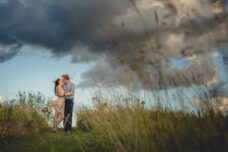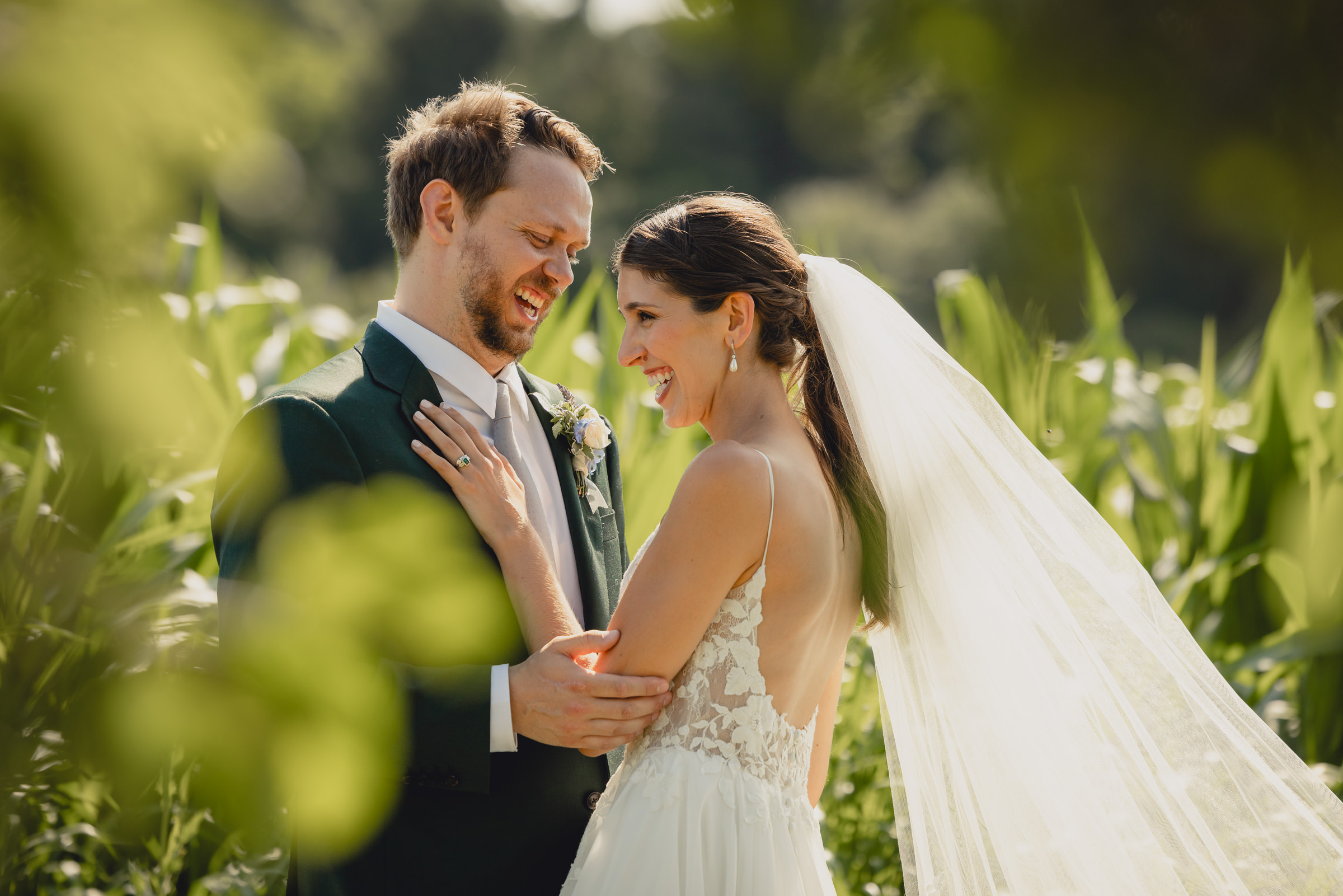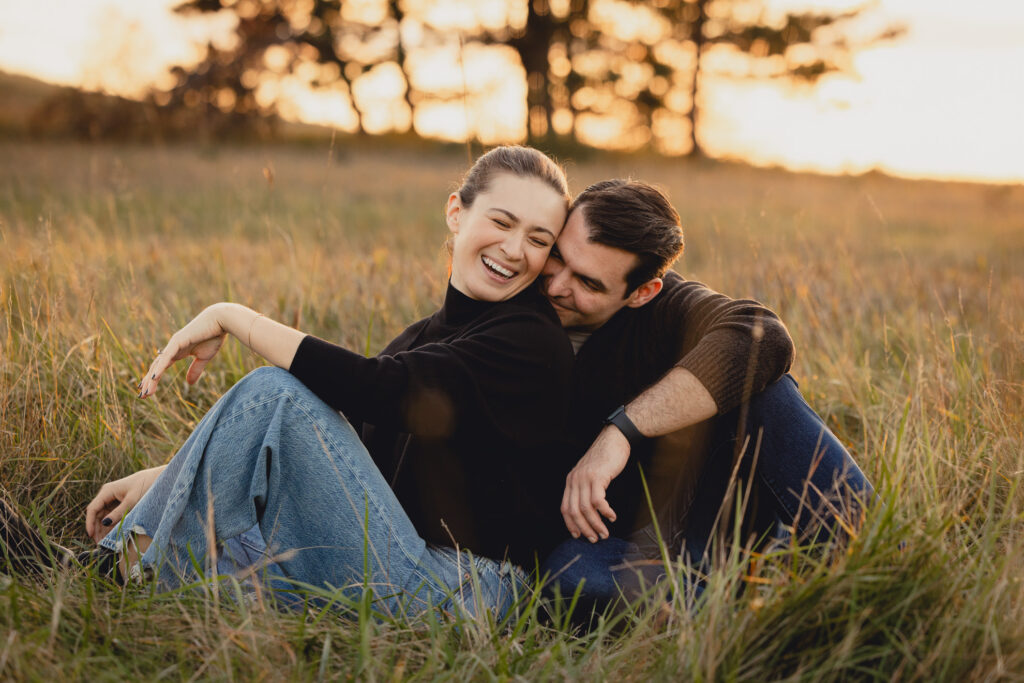Sister Marsha Allen, Dr. Angela Branche, volunteers provide COVID-19 education and theraputics to the Black community in Rochester, NY
As we all know, the year 2020 brought us COVID-19. It also brought the Black Lives Matter movement to new heights in the wake of the killings of George Floyd, Breonna Taylor and so many others. These may seem like unrelated stories, but they collided and took new meaning while documenting the story of Sister Marsha Allen, Dr. Angela Branche and their efforts to both aid the Black community and increase COVID-19 vaccine participation in Rochester, NY.
I’ve spent a LOT of time in Rochester throughout the past year. I’ve mainly been covering stories related to racism within the Rochester Police Department for Reuters – from the fallout following the release of police cam footage of Daniel Prude’s killing, to an exhaustive three part report we released about the history of policing the Rochester Police Department through the lens of Silvon Simmons‘ story. Sister Marsha and Dr. Branche’s story would be a different story about race in the city of Rochester though.
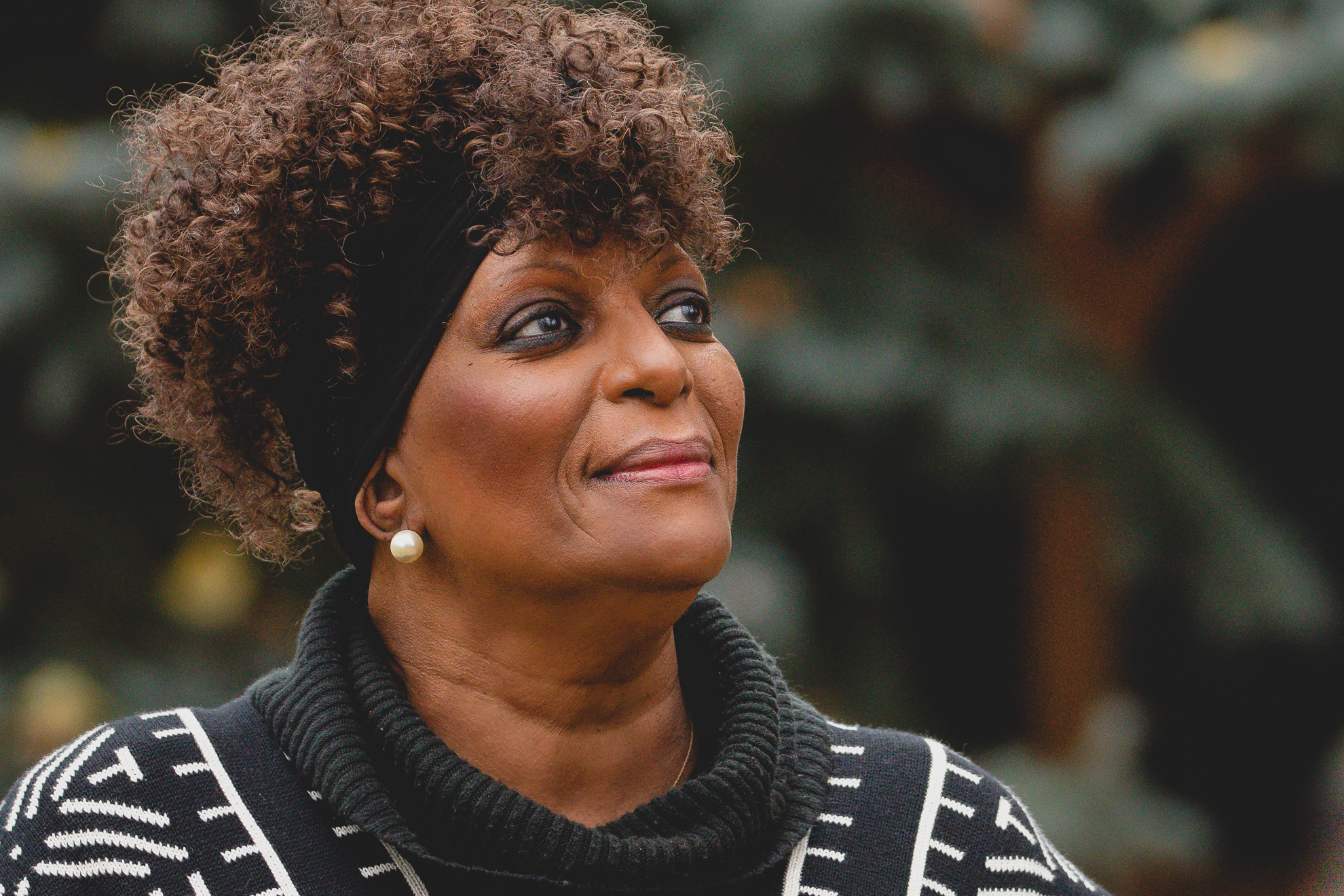
Meet Sister Marsha Allen (above), an Ivy League educated, ordained minister, who runs a three acre community farm (The Vineyard) in Rochester’s poorest and predominately black neighborhood. Sister Marsha saw members of her already struggling community being affected by COVID-19 at astonishing and disproportionate rates. She knew she needed to help.
Sister Marsha had begun planning a door knocking campaign to try to educate the community about COVID-19, when a mutual connection brought Dr. Angela Branche in to the picture. Dr. Branche, another Ivy Leaguer, black woman, and infectious disease expert was working on a COVID-19 clinical trial at the University of Rochester, just a few miles away. Dr. Branche wasn’t seeing members of the black community represented at the COVID-19 vaccine trials. She knew she also needed to reach out to the Rochester community for help. Thus, an alliance was formed. These two needed each other.
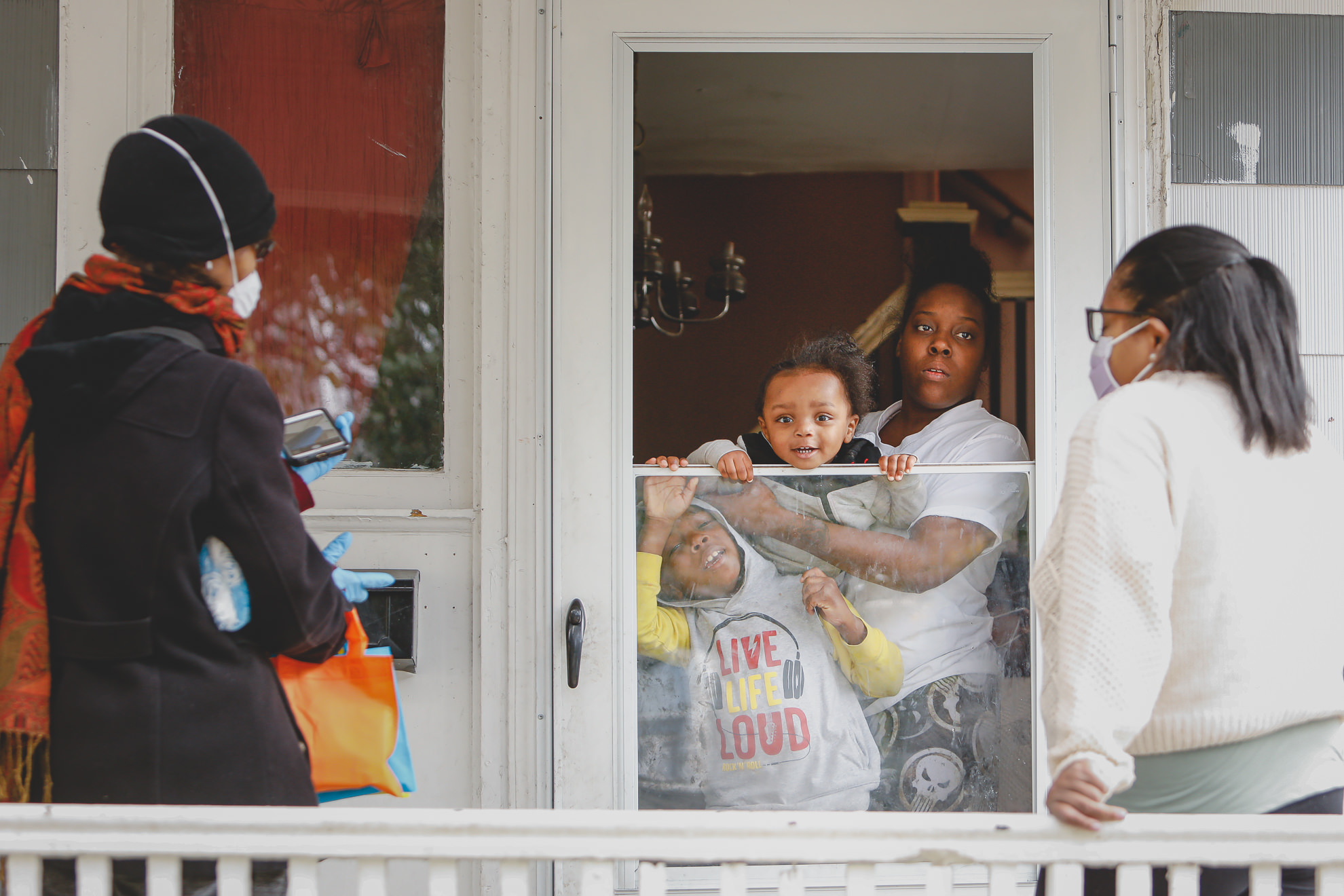
Knowing and understanding the immense mistrust of vaccines within the Black community, Sister Marsha and Dr. Branche had to approach the community on a grassroots level. They knew that to build trust, they needed to rely heavily on giving Black people access to doctors and scientists of color. Dr. Branche was able to bring in volunteer doctors and nurses from her medical circles to speak to the community. She was also able to secure donations from the University of Rochester to create thousands of COVID-19 survival kits. The kits were equipped with masks, thermometers, sanitizer and information about the disease. They created teams of volunteers to go door-to-door to answer any questions people may have about the disease, vaccines, vaccine trials and everything in between.
The barn at the Vineyard, became the staging ground for assembling these kits and teaching the community about the COVID-19 vaccine.
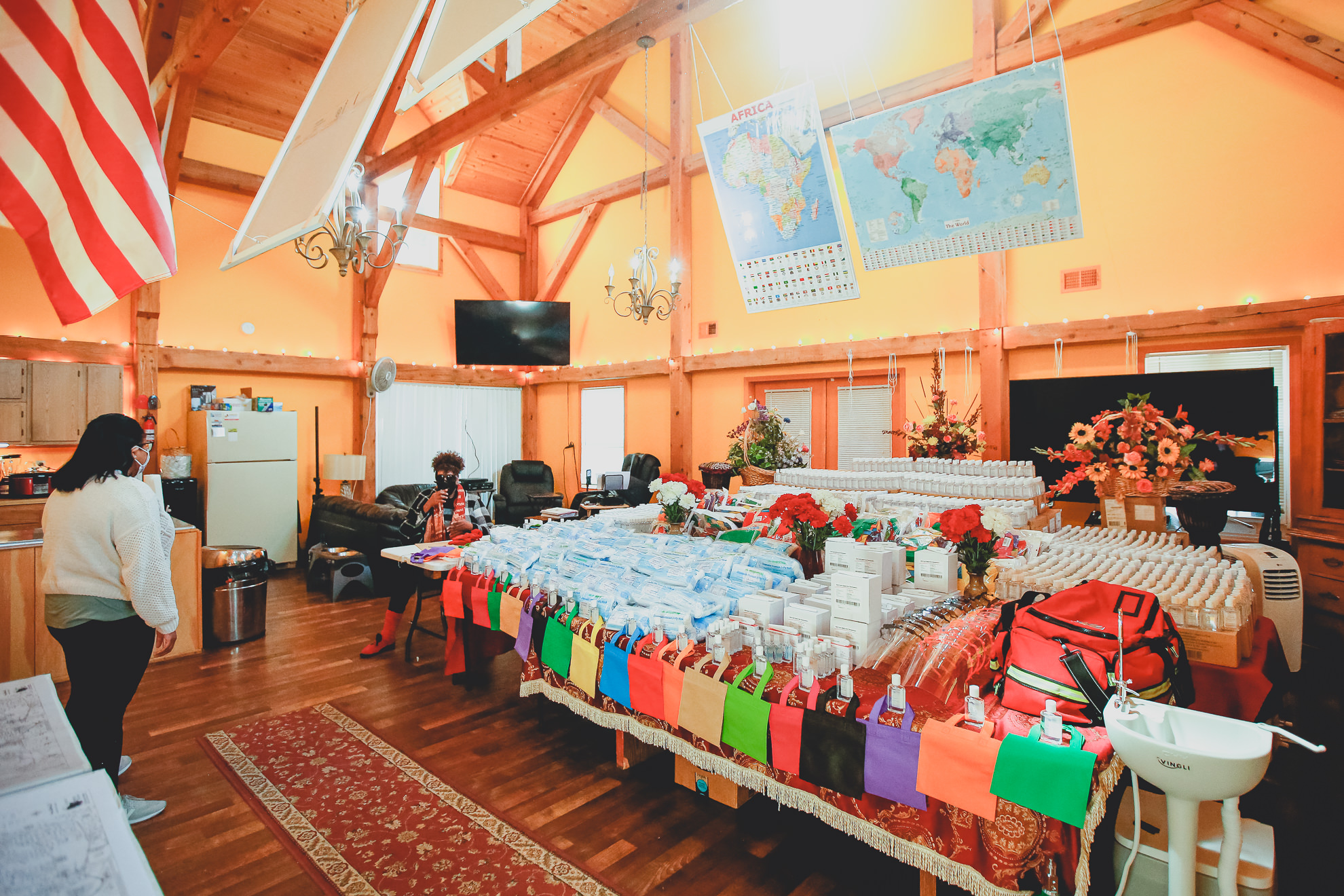
Sister Marsha often uses military references when describing the work they do to keep the community safe and often referred to this undertaking as, “holding the line.”
The effort to, “hold the line” didn’t stop with door knocking though. Sister Marsha and Dr. Branche organized several different types of outreach events, the first of which was a neighborhood food drive. With the help of Wegman’s grocery store and other local farms, free fresh food boxes were assembled and passed out as part of a six week campaign to help financially struggling families get by during the pandemic. Over 1,200 people lined the street to receive their food box on the morning of October 17th. The struggle of Rochester’s Black community was illustrated plainly when observing those waiting in this massive line.



As members of the community reached the front of the line, they weren’t just given the food box but also a COVID-19 survival kit. Those interested in learning more about COVID-19 were invited back to the farm for training sessions. These sessions would provide a safe haven to ask questions, get answers from experts, and in turn educate others.

As the fall continued, Sister Marsha and Dr. Branche raised funds to purchase “bubbles” for families to safely gather in at the farm.

They hosted several events each weekend in the bubbles so community members could learn more about COVID-19 from experts in the field. Each bubble had a table, chairs, a small space heater, COVID-19 literature and a microphone so they could freely ask questions from their bubble.
Sister Marsha and Sister Jenthia Abell opened and closed the sessions with a prayer and song. In between, infectious disease experts presented material about COVID-19, the vaccine, and gave space for neighbors to ask questions.

The questions they asked were eye opening. “Why do black people get COVID more than white people?” “If the vaccine makes me sick and I don’t have insurance, what will happen to me?” “Can I die from a vaccine?” “Will the government mandate me to get the vaccine?” A young boy even asked how he could make a vaccine himself.





You can read the full Reuters story about the COVID-19 vaccine and the black community in Rochester by my colleagues Julie Steenhuysen and Nick Brown here.








